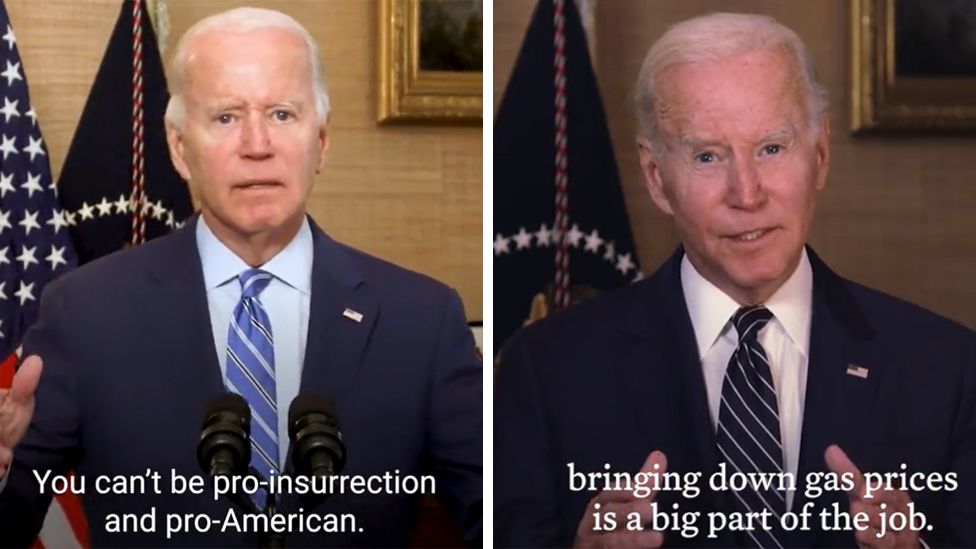Potential Candidates
The search for a potential replacement for President Biden has been a topic of much speculation and discussion. Several individuals have been mentioned as possible contenders, each with their own unique qualifications and experience.
One potential candidate is Vice President Kamala Harris. Harris has served as Vice President since 2021, and prior to that, she was a Senator from California. She is a graduate of Howard University and the University of California, Hastings College of the Law. Harris has a long history of public service, having served as a prosecutor and Attorney General of California. She is a member of the Democratic Party and is considered to be a moderate Democrat.
Another potential candidate is Transportation Secretary Pete Buttigieg. Buttigieg served as Mayor of South Bend, Indiana from 2012 to 2020. He is a graduate of Harvard University and Oxford University. Buttigieg is a veteran of the US Navy Reserve and served in Afghanistan. He is a member of the Democratic Party and is considered to be a moderate Democrat.
A third potential candidate is Senator Elizabeth Warren of Massachusetts. Warren has served in the Senate since 2013. Prior to that, she was a law professor at Harvard University. Warren is a graduate of the University of Houston and Rutgers University School of Law. She is a member of the Democratic Party and is considered to be a progressive Democrat.
These are just a few of the potential candidates who have been mentioned as possible replacements for President Biden. The ultimate decision of who will run for President in 2024 will be up to the voters.
Electoral Considerations: Who Can Replace Biden

Who can replace biden – The United States’ electoral system is a complex one, and it has a significant impact on the selection of the president. The system is based on the Electoral College, in which each state is assigned a certain number of electors based on its population. The candidate who wins the most electoral votes wins the presidency, regardless of whether they win the popular vote.
This system can give an advantage to candidates from large states, as they have more electors to win. However, it is also possible for a candidate to win the presidency without winning the popular vote, as has happened several times in recent history.
Swing States
In the US presidential election, swing states are those that are considered to be competitive between the two major parties. These states are often the key to winning the election, as they can determine the outcome of the Electoral College vote.
In recent elections, swing states have included Florida, Ohio, Pennsylvania, and Wisconsin. These states are often closely divided between the two parties, and they can swing either way depending on the issues and candidates involved.
Demographic Changes, Who can replace biden
The demographic makeup of the United States is changing, and this is having a significant impact on the presidential election. The Hispanic population is growing rapidly, and this is making it more difficult for Republicans to win elections.
In addition, the white population is becoming increasingly older, and this is also having an impact on the election. Older voters are more likely to vote for Republicans, so the GOP is trying to appeal to this demographic.
Third-Party and Independent Candidates
Third-party and independent candidates have had little success in winning the presidency. However, they can still have an impact on the election by taking votes away from the major party candidates.
In 2016, for example, Libertarian candidate Gary Johnson won 3.3% of the popular vote. This may not seem like a lot, but it was enough to cost Hillary Clinton the election in several key states.
Public Opinion and Political Landscape

Public perception of potential candidates and their policies plays a crucial role in shaping the electoral landscape. Recent polls indicate that voters are primarily concerned with issues such as the economy, healthcare, and climate change. Among potential candidates, incumbent President Joe Biden faces mixed approval ratings, while several Republican contenders have gained traction.
Impact of Current Events and Political Issues
Current events and political issues significantly influence the electoral landscape. The ongoing COVID-19 pandemic has had a profound impact on the economy and healthcare systems, creating economic uncertainty and heightening concerns about public health. The war in Ukraine has also become a major issue, raising questions about foreign policy and national security. These events have led to shifts in public opinion and forced candidates to address these issues in their campaigns.
Role of Media and Social Media
Media and social media play a vital role in shaping public opinion. Traditional media outlets, such as television news and newspapers, continue to influence voter perceptions. However, social media platforms have become increasingly important in shaping the political landscape. Candidates use social media to connect with voters, share their messages, and respond to criticisms. Social media also allows for the dissemination of information and opinions that may not be represented in traditional media.
With the uncertainty surrounding President Biden’s future, many have begun speculating about potential successors. Among the names being floated is Odyssey Sims , a rising star in the Democratic Party. Sims has a strong track record of public service and is known for her progressive views.
While it remains to be seen whether she will ultimately throw her hat in the ring, Sims is certainly one to watch as the race for the Democratic nomination heats up.
The question of who can replace Biden looms large over the political landscape. With his approval ratings faltering, the Democratic Party is searching for a charismatic and electable candidate to lead them into the next election. While several potential candidates have emerged, none have yet captured the imagination of the electorate.
Some have pointed to the impressive success of SoFi Stadium as a model for the kind of transformative leadership that the country needs. Its innovative design and commitment to sustainability have made it a beacon of progress in a challenging time.
As the search for a Biden successor continues, it remains to be seen whether any candidate can match the visionary spirit that has propelled SoFi Stadium to such heights.